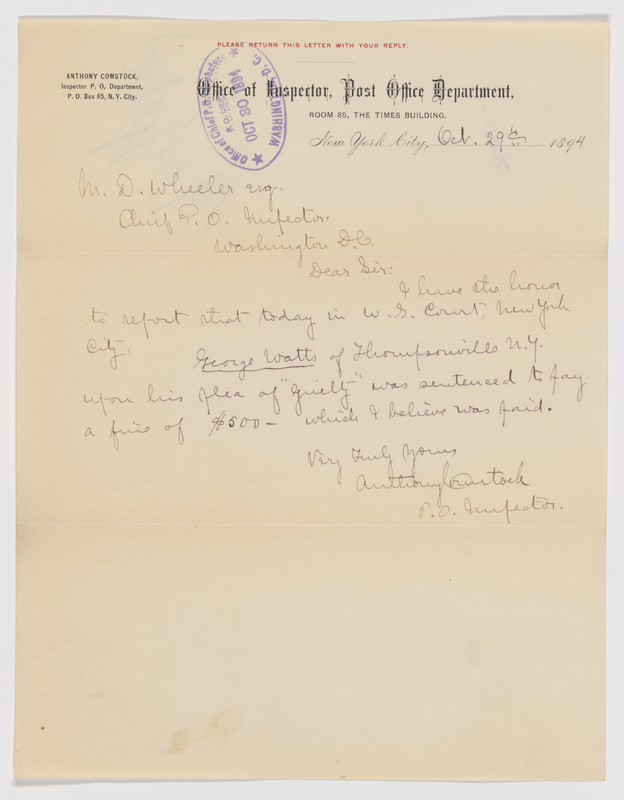Vicecapades: 150th Anniversary of the 1873 Comstock Act
An Act for the Suppression of, trade in, and circulation of obscene literature and articles of immoral use known as the Comstock Act
Anthony Comstock (1844–1915), a self-appointed guardian of public morality, successfully lobbied Congress for stricter obscenity laws and secured an appointment as a special agent to the United States Postal Service with broad powers to police the mails. The law did not define obscenity—Comstock did. In court cases, he often barred jurors from seeing the item in question, saying that it was too vile to show them.
Among the many items banned by the 1873 Comstock Act were books on anatomy, works by British author D. H. Lawrence, information about contraception, and photographs of boxing matches. Anthony Comstock boasted that in his lifetime he seized 150 tons of books, made 4,000 arrests, and drove 15 people to suicide.

Image Credit: “St. Anthony Comstock, the Village Nuisance” (vignette) by Louis M. Glackens, 1906. Image courtesy of the Library of Congress (detail)